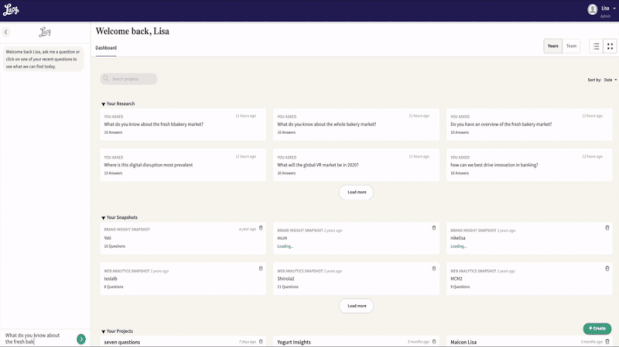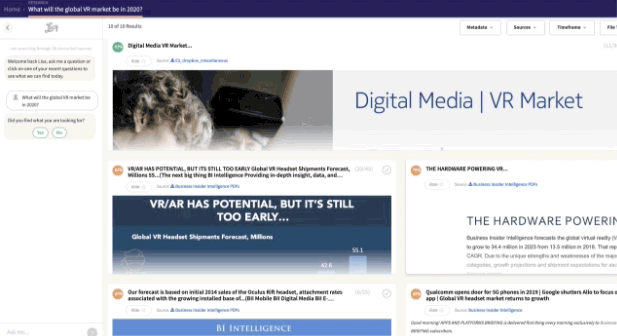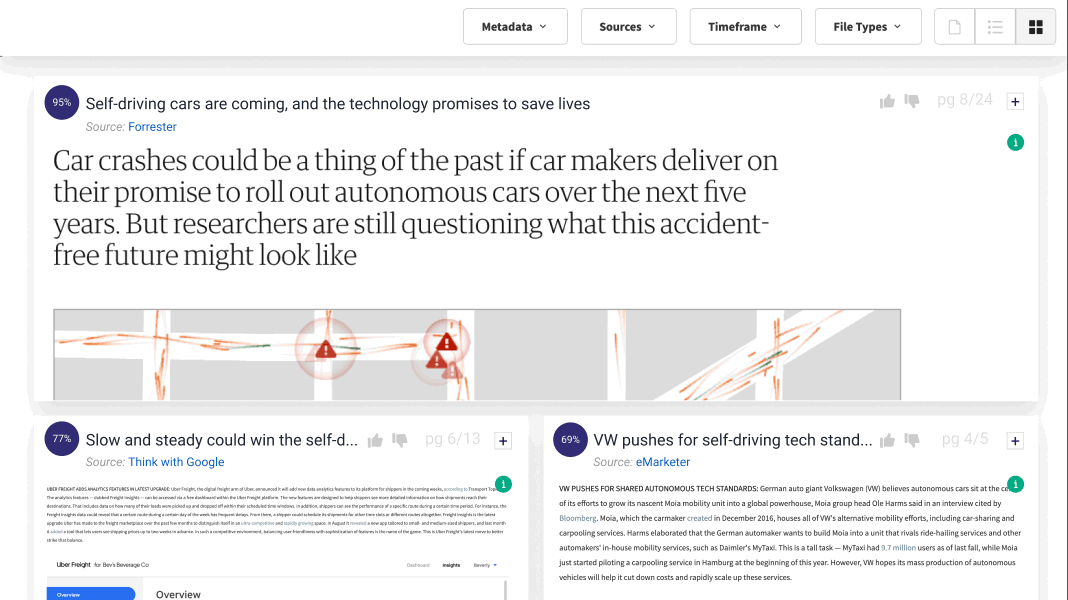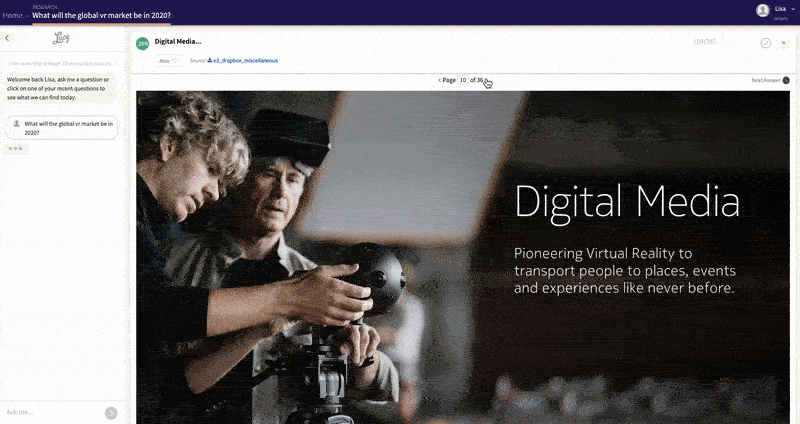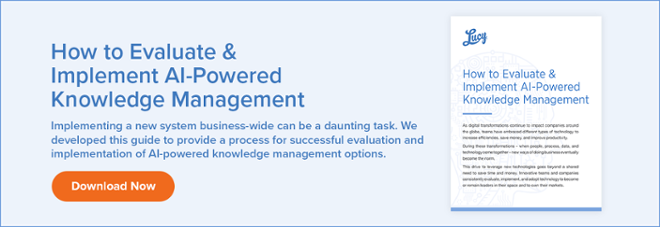We live in an era when businesses are losing knowledge faster than they can absorb it. On average, employees spend eight hours a week searching for what they need. Unshared knowledge costs time, wastes money, and affects performance, especially when information is spread across folders, repositories, and geographies; data is based on titles and keywords rather than content; results are a list of documents; content created by peers or obtained isn’t accessible; knowledge is lost when people leave.
Imagine if your teams could continually leverage and build upon all of your organization’s accumulated knowledge. The benefits, productivity improvements, and competitive advantage would be substantial. Talented teams paired with AI can instantly find the information they need to make quick, data-backed decisions.
With the speed of modern business and high demand for quick, impactful results, businesses need all the help they can get in harnessing their data assets. AI systems are evolving to solve issues related to enterprise search – maintaining a bounty of information and being able to pinpoint where specific documents and information are stored. While the idea of asking “What were the biggest drivers of customer acquisition in 2019,” and instantly getting a specific answer from page 23 of a 75-page PowerPoint, seems like a fantasy, AI is making this commonplace.
Internal Questions to Determine Organizational Fit
You may have attended a conference or event on the use of artificial intelligence as it relates to knowledge management, or maybe you read a piece of content or had a discussion with a colleague regarding the subject, but you may be left wondering if potential solutions are right for your organization.
If you can answer “yes” to the questions below, it’s probably time to continue the process:
• Does your company house terabytes of data?
• Is the majority of the data unstructured?
• Do you have a plethora of third-party licenses not being used?
• Are your subject matter experts bogged down?
• Does your company have many divisions and lots of shared knowledge?
• If you’re at a smaller company, are you still struggling with managing large amounts of data?
Initial Assessment Questions
As you begin researching AI-powered systems, it’s beneficial to consider some questions out of the gate:
• What options are out there?
• What problems are being solved?
• How can these types of products help me?
• Do the solutions apply to me and/or my team?
• What don’t I know that may be possible?
• How are different solutions the same or different?
These types of questions help you to understand the available options, vet potential solutions, and determine initial fit.
Value Assessment Questions
The next step in the process is to determine if there is a measurable value and potential return on investment. During this step, examine the following:
• Does the system solve our needs?
• Does it align with our priorities?
• Will the solution make our teams more productive?
• Does it apply to our industry?
• Will it work with our data sources?
• Do we have the internal resources to be successful?
Conversations around these questions often involve multiple people. During this stage, it is critical to get buy-in from decision makers and to receive input from end users to analyze proof
of value. As you continue the evaluation process, subsequent discussions regarding IT requirements, procurement, and security issues are sure to follow. However, it is extremely important to thoroughly vet different AI-powered systems prior to moving forward. Every system has certain strengths and weaknesses. The key is to have a consistent assessment process in place to determine the right fit from the start. Otherwise, it can be easy to get off track or waste time.
Pro Tip: Seek out a partner vendor that is open and honest in what their product and services can and cannot provide.

